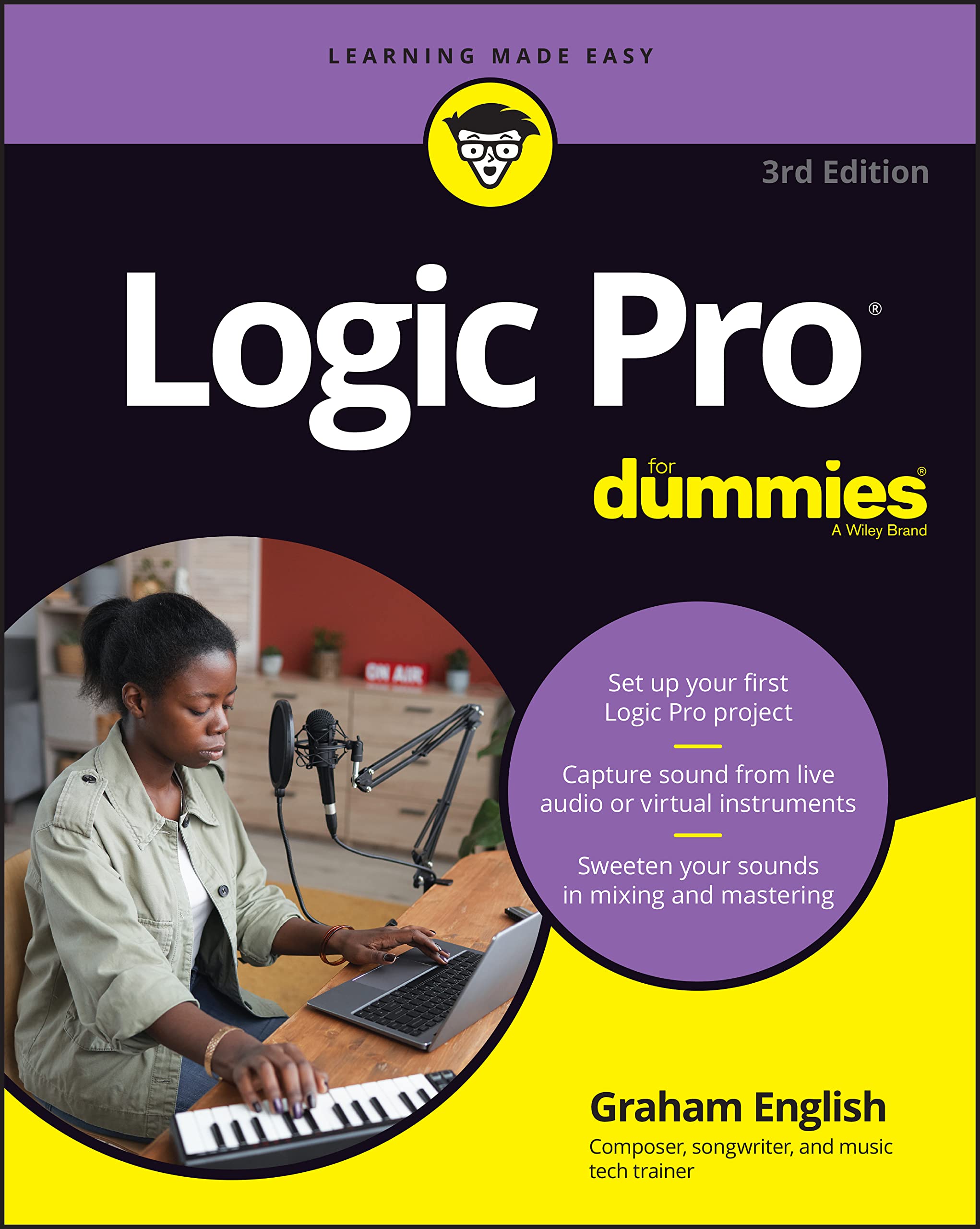To master a song, use EQ, dynamics processing, and spatial effects in a DAW. Practice is key to mastering songs effectively.
Mastering a song is a crucial step in the music production process that involves enhancing the overall sound quality and ensuring consistency across different platforms. By utilizing tools like equalization (EQ), compression, limiting, and reverb, you can achieve a polished and professional-sounding final product.
Understanding how to balance these elements and make subtle adjustments to enhance the clarity, depth, and dynamics of the song is essential. Additionally, it’s important to test the mastered track on various playback systems to ensure it translates well across different devices. With practice and attention to detail, mastering a song can elevate its quality and appeal to listeners.
The Importance Of Song Mastering
Setting The Stage For Success
Mastering is crucial for achieving optimal sound quality and ensuring your song stands out.
It involves refining the overall balance, clarity, and consistency of the audio track.
Enhancing The Listening Experience
Mastering enhances the dynamics and depth of the music, making it more enjoyable to listen to.
It ensures that the song sounds cohesive and professional across different playback systems.

Credit: brendandekora.com
Understanding The Basics Of Audio Mixing
Mastering a song involves mastering the art of audio mixing. It’s crucial to delve into the fundamentals of audio mixing for a polished final product.
Balancing Levels And Frequencies
- Balancing levels ensures every instrument is heard distinctly.
- Adjust frequencies to prevent any clashes in the sound.
Utilizing Audio Effects
- Reverb and delay can add depth and space to the sound.
- Use compression to even out the dynamic range.
Advanced Techniques For Mastering
Advanced techniques for mastering are essential to bring out the best in a song and make it stand out. These techniques, when used with precision, can elevate the quality of the music to a professional level. Below, we’ll dive into two advanced mastering techniques—Dynamic Range Compression and Stereo Widening and Imaging.
Dynamic Range Compression
Dynamic Range Compression (DRC) is a vital tool in mastering, allowing you to control the dynamic range of a sound. It reduces the volume of loud sounds or amplifies quiet sounds by compressing the dynamic range. When used effectively, DRC can make a song sound cohesive and well-balanced. It helps in preventing parts of the track from being too loud while maintaining perceptible soft passages.
Stereo Widening And Imaging
Stereo Widening and Imaging is an advanced mastering technique used to enhance the stereo image of a mix, ultimately providing a wider and more immersive sound. This process can be achieved by utilizing tools such as stereo wideners, panning, and spatial effects. By implementing Stereo Widening and Imaging, you can create a sense of depth and space within the mix, making it more engaging for the listener.

Credit: grahamenglish.com
Utilizing Professional Tools And Software
When it comes to mastering a song, utilizing professional tools and software is crucial to achieve the best results. The right tools can make all the difference in ensuring that your final product sounds polished and professional.
Choosing The Right Digital Audio Workstation
Selecting the appropriate digital audio workstation (DAW) is the first step in mastering a song. A DAW is a software application that allows you to record, edit, and mix audio tracks. It provides a range of tools and features specifically designed for audio production.
There are several popular DAW options available, each with its own strengths and weaknesses. Some commonly used DAWs include:
| DAW | Description |
|---|---|
| Ableton Live | A versatile DAW favored by electronic music producers for its live performance capabilities. |
| Pro Tools | A standard in the music industry, Pro Tools offers a wide range of features and is known for its professional-quality audio editing and mixing. |
| Logic Pro | Created by Apple, Logic Pro is popular among Mac users and offers a comprehensive set of tools for music production and mixing. |
When choosing a DAW, consider factors such as your budget, compatibility with your operating system, and the specific features and workflow that suit your needs. It’s essential to select a DAW that you feel comfortable using, as mastering requires a deep understanding of the software.
Essential Plugins For Mastering
In addition to a reliable DAW, incorporating essential plugins into your mastering process can significantly enhance the quality of your final mix. Plugins are software components that perform specific functions within your DAW, such as equalization, compression, and stereo imaging.
Here are some essential plugins to consider for mastering:
- EQ Plugin: An equalizer plugin allows you to adjust the frequency balance of your mix, helping to enhance clarity and remove any unwanted frequencies.
- Compressor Plugin: A compressor plugin helps to control the dynamic range of your mix, ensuring that the quieter parts are audible while preventing clipping and distortion.
- Limiter Plugin: A limiter plugin sets an upper limit on the overall volume of your mix, preventing any clipping and providing a polished, commercial loudness.
- Stereo Imaging Plugin: A stereo imaging plugin enables you to manipulate the stereo width and depth of your mix, allowing for a more immersive and balanced sound.
- Reverb Plugin: A reverb plugin adds a sense of space and depth to your mix, creating a natural or artificial reverberation effect.
These are just a few examples of essential plugins used in the mastering process. There are numerous options available, and experimentation is key in finding the ones that best suit your style and desired sound.
By utilizing professional tools and software, such as the right DAW and essential plugins, you can take your mastering skills to the next level and achieve the polished sound you desire for your songs.
Crafting A Masterpiece: Practical Tips And Best Practices
Welcome to the world of audio mastering, where every knob twist and tweak can transform a good song into a masterpiece. Crafting a masterpiece requires a keen ear, a deep understanding of the art, and a range of practical tips and best practices. In this blog post, we will explore the essential steps to take when mastering a song, focusing on preparing the mix for mastering and tailoring the master for different distribution platforms.
Preparing The Mix For Mastering:
Before diving into the mastering process, it is crucial to ensure that the mix is in its best possible shape. While mixing and mastering are distinct stages, a well-balanced mix acts as a solid foundation for the mastering engineer to work on. Here are some practical tips to prepare the mix for mastering:
- Aim for a dynamic mix: Avoid excessive volume, and give each element in the mix enough space to breathe.
- Pay attention to frequency balance: Ensure that different elements occupy different frequency ranges, preventing masking and muddiness.
- Remove any unwanted noise or artifacts: Clean up any clicks, pops, hisses, or background noise from the mix.
- Check for phase issues: Listen for any phase cancellation or comb filtering problems that may arise from conflicting audio sources.
- Create headroom: Leave enough headroom in the mix to prevent clipping and allow the mastering engineer to apply dynamic processing.
Mastering For Different Distribution Platforms:
Once the mix is ready, it’s time to delve into the realm of mastering. However, it’s important to remember that different distribution platforms may have their own unique requirements and specifications. To ensure your master sounds optimal across various platforms, consider the following:
| Distribution Platform | Recommended Formats | Mastering Considerations |
|---|---|---|
| Streaming Platforms (e.g., Spotify, Apple Music) | Lossy formats (MP3, AAC) | Pay attention to loudness normalization and avoid excessive peak limiting to prevent distortion. |
| CD Releases | 16-bit WAV or FLAC | Ensure the master is optimized for optimal CD playback, considering the overall loudness and track sequencing for a cohesive listening experience. |
| Vinyl Records | 16-bit WAV or FLAC | Be mindful of the dynamic range and avoid excessive low-end energy, as it can cause tracking issues and affect the playback quality. |
By tailoring your masters to these different platforms, you can maximize the listening experience and ensure your song translates well across digital and physical mediums.

Credit: www.youtube.com
Frequently Asked Questions Of How To Master A Song
How Does Mastering Affect The Overall Sound Quality Of A Song?
Mastering is the final step in the music production process. It enhances the sound quality of a song by balancing, equalizing, and optimizing the audio for different playback systems. It ensures that the song sounds consistent, polished, and professional across various platforms.
What Tools And Software Are Commonly Used For Mastering?
Professional mastering engineers use a variety of tools and software to master songs. Some popular ones include Digital Audio Workstations (DAWs) like Pro Tools and Logic Pro, plugins such as EQs and compressors, and specialized mastering software like iZotope Ozone.
These tools help achieve precise control over the song’s sound and dynamics.
Can I Master My Own Songs At Home Without Professional Equipment?
Yes, you can master your own songs at home using a computer and quality headphones or monitors. While professional equipment and acoustical treatments are beneficial, there are affordable options available for home studios. It’s important to educate yourself on mastering techniques, use reference tracks, and trust your ears to achieve satisfactory results.
Conclusion
Mastering a song is a crucial part of the music production process. By understanding the fundamentals and utilizing the right tools, mastering can elevate your music to new heights. With careful attention to detail and a commitment to the craft, you can achieve professional, high-quality results.
Embrace the journey of mastering, and let your creativity shine through your music.